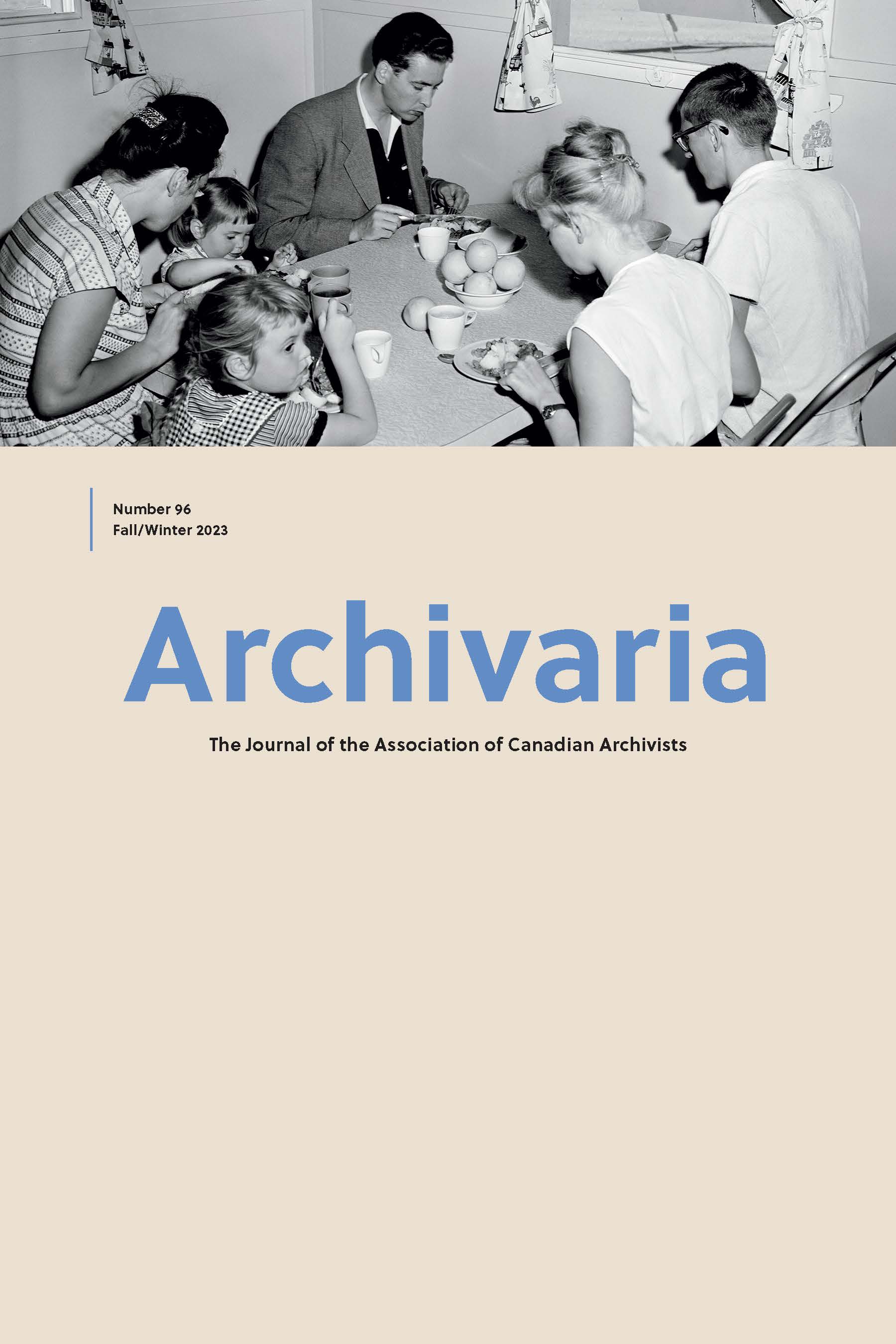Family Archives, Fateful Options
Abstract
This article presents reflections prompted after the writer, a retired archivist, began work during 2020 on family papers passed to his care following his parents’ deaths, conscious in doing so that many of the baby boomer gener- ation (born between 1946 and 1964) must be undertaking similar exercises and facing similar needs for decisions about the legacy of the last truly analog generation. The resulting autoethnography draws on his own family story, the emotional experience of working on the papers, archival theory, biographies, and autobiographies. The reflections are structured around the three options all families face in actively dealing with their archives: to cull them; to seek to outsource or deprivatize their custody to a library, archives, or more specialist heritage body; or to manage them within the family. He also identifies various psychological, societal, and random factors influencing individual approaches to the choices and shaping what was created and survived, which the children can consider “round the kitchen table.” An additional dimension speculates about the notion of family, and family pets, within descriptive standards and ideas of provenance.
Authors of manuscripts accepted for publication retain copyright in their work. They are required to sign the Agreement on Authors' Rights and Responsibilities that permits Archivaria to publish and disseminate the work in print and electronically. In the same agreement, authors are required to confirm that "the material submitted for publication in Archivaria, both in its paper and electronic versions, including reproductions of other works (e.g. photographs, maps, etc.) does not infringe upon any existing copyright." Authors of manuscripts accepted for publication retain copyright in their work and are able to publish their articles in institutional repositories or elsewhere as long as the piece is posted after its original appearance on archivaria.ca. Any reproduction within one year following the date of this agreement requires the permission of the General Editor.





